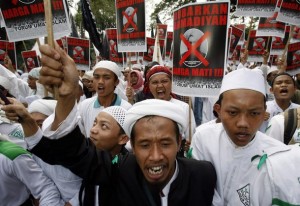By Delisa Morris
Desk Reporter, South America
El Niño, a weather phenomenon, is probably going to occur in the third quarter of 2014. Which means that we should be seeing El Niño like temperatures within the next few weeks. During El Niño the weather is characterized as oddly warm ocean surface temperatures in the central and eastern tropical Pacific.

The phenomenon starts as a body of warm water developing in the central and eastern Pacific ocean. The water then flows toward the western coast of South America. This sets off several weather changes globally.
El Niño weather only recurs at two- to seven-year intervals. The effects of which have a major impact on the climate around the world, including heavy rainfall and droughts.
Places in the world become dryer than normal conditions due to El Niño’s drought effects, or more floods occur due to the heavy rainfall. El Niño also affects the temperature, normal temperatures are either colder or hotter than normal during El Niño weather. The weather changes mostly increase global temperatures on top of man-made global warming.
The socio-economic impacts during El Niño can be extremely detrimental to the affected area. During the last El Niño from 2009 until 2010, the hottest year on record, in northern Brazil the conditions were drier than normal while across tropical South America conditions were wetter than normal conditions. South America usually is most impacted by widespread flooding, though there is also an increased chance of landslides.
During El Niño agriculture, infrastructure, housing, and health, such as outbreaks of cholera and other water-borne diseases, are vastly affected. There will also be a shift in nutrient-rich ocean currents that lure fish, which could lead to a rise in the prices of food.
The unpredictable weather wreaks havoc on farmers and other agricultural markets.
Many international organizations are jump-starting El Niño preparedness warnings to mitigate the extreme weather’s impact. For example, World Food Program has begun storing food in areas that may be difficult to reach in extreme weather conditions.
According to Moody’s Investors Service, governments and banks in South America are in better financial shape to deal with the costs of this year’s El Niño than in the past.
The Pacific ocean has already began to warm to weak El Niño temperatures, the weather is not expected to dissipate until early months of 2015.
La Niña is the name for when the El Niño phenomenon is ending, and temperatures start to return to normal. Scientists say that while the two extreme weather patterns are not caused by global warming, their frequency and intensity are vastly affected by greenhouse gasses.
For more information, please see:
Business Insider – Prepare for El Nino – July 1, 2014
Time – El Nino Increasingly Likely, United Nations Weather Agency Warns – June 26, 2014
VOA news – El Nino Likely to Trigger Extreme Climate Events – June 26, 2014
The Wall Street Journal – South America Better Positioned Financially for El Nino, Moody’s Says – July 1, 2014

